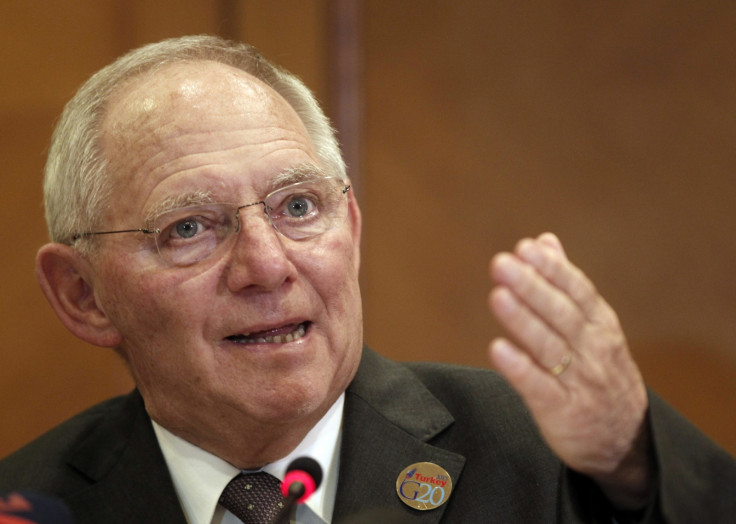Greek debt crisis: Germany's Wolfgang Schäuble says Greece may be better off leaving euro

German Finance Minister Wolfgang Schäuble says a Grexit may be a better solution to Athens's debt woes, days after the country agreed to the terms of a fresh bailout from its creditors.
Speaking before a key vote at the Bundestag on 17 July in which German lawmakers will decide on whether to back a third rescue deal worth £60bn (€86bn, $94bn) for Greece, Schäuble said Athens could not manage its debt without writing some of it off – but a so-called debt "haircut" is opposed by some members of the eurozone.
We don’t want to [enforce Grexit], and no one has suggested it, but it would perhaps be the better way for Greece.
The comments come after the finance minister previously suggested a five-year Grexit from the currency bloc as a solution to the debt crisis.
"We have not said that we will impose this [Grexit], we can't, we don't want to, and no one has suggested it, but it would perhaps be the better way for Greece," Schäuble was quoted as saying to Deutschlandfunk radio by the New York Times.
"Nobody knows in the moment how it is supposed to happen without debt relief, but everyone knows that debt relief is not possible within the eurozone.
"The more difficult question will be to reach sustainability of the debt, whether a package that is large enough can be agreed upon without any debt reduction.
"Then we are back in the situation that debt reduction is not allowed in the eurozone."
Despite the finance minister's hawkish comments, German lawmakers are widely expected to back a fresh rescue deal for Greece after a test vote at the Bundestag on 16 July passed overwhelmingly in favour of continuing bailout negotiations, Reuters reported.
The European Central Bank reopened funding to Athens on 16 July after Greek MPs backed legislation involving new austerity measures, including cutting pensions, raising taxes and liberalising the labour market, to enable a third bailout deal with the country's creditors to move forward.
This was despite several of the proposed measures being rejected by the Greek people in a referendum on 5 July.
The country's banks remain closed and strict capital controls, that limit per-day withdrawals to €60, are still in place.
© Copyright IBTimes 2025. All rights reserved.






















